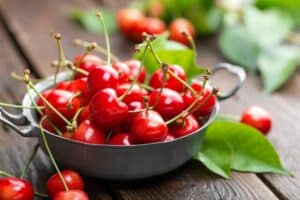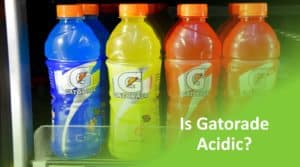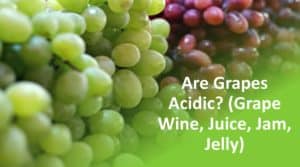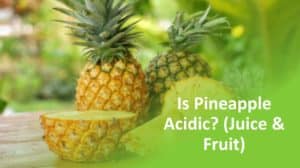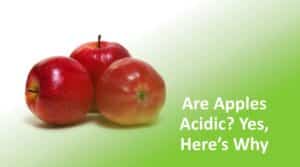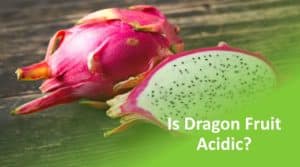As you may know, anything lower than a seven on the pH scale is acidic, meaning most of our favorite carbonated beverages, including coke, are highly acidic. Regular Coke has a pH level of 2.37. This delicious beverage may be harmful to your body if you over-consume it.
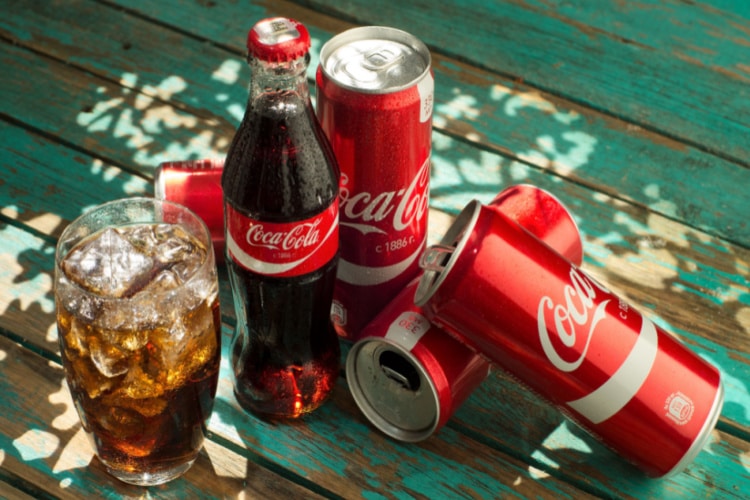
The Ingredients in Coca Cola
The exact recipe is a big secret, but according to Coca-Cola, the drink contains carbonated water, high fructose corn syrup, caramel coloring, phosphoric acid, caffeine, and natural flavors. Carbonated water makes it fuzzy, while caffeine and phosphoric acid make it acidic.
Why Is Coca-Cola Acidic?
Contrary to popular belief, it’s not the carbon dioxide that makes cola acidic. It’s phosphoric acid, an additive that prolongs the product’s shelf life.
Phosphoric acid is a crystalline liquid with no color and odor that prevents the possible growth of mold or bacteria in sugary environments. It also gives your beverage that signature tangy flavor.
A 12 oz can contains about 30 mg of caffeine, adding to the drink’s acidity.
Are All Flavors of Coca-Cola Acidic?
All flavors and variations of coke are acidic since they all include phosphoric acid. However, the pH levels vary depending on the flavor.
Here is a rundown of the pH levels of the different coca-cola flavors:
| Coca-Cola Flavor | pH Level |
|---|---|
| Classic | 2.37 |
| Diet | 3.10 |
| Zero Sugar | 2.96 |
| Cherry | 2.38 |
*The data for the pH levels for all soft drinks mentioned in this article are taken from the Journal of the American Dental Organization’s 2016 report.
Is Drinking Coca-Cola Bad for Your Health?
Enjoying a can once in a while might be fine, but regular consumption will be harmful to your health.
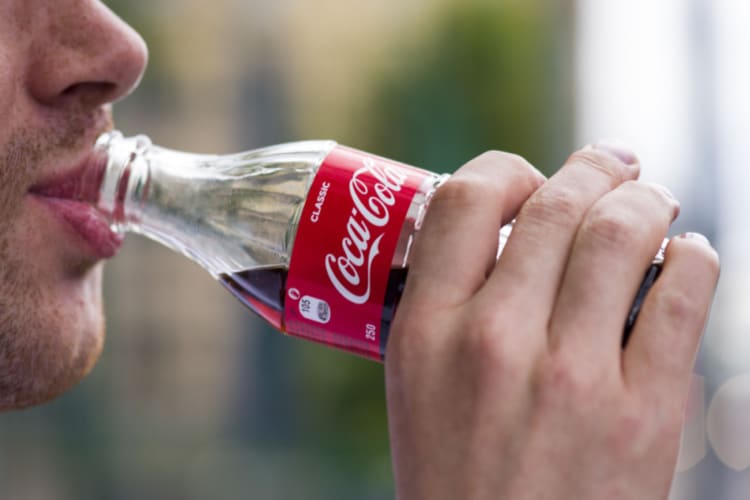
The beverage contains huge amounts of sugar (the 20 fl oz bottle contains 65 to 70 grams) and artificial sweeteners, which are not good for your blood glucose levels. It’s corrosive to your teeth and bones and aggravates acid reflux due to its acid content. It’s also very dehydrating as it’s high in caffeine.
The Effects of Coca-Cola on Teeth
Drinking cola regularly is very bad for your teeth. It contains the two archenemies of teeth: sugar and acid.
The bacteria that live in your mouth (we know, ew! But we all have them) feed on sugar and produce acid. Drinking acidic beverages is like throwing a feast for those pesky tooth destroyers.
The phosphoric acid and sugar combination isn’t just a recipe for cavities. The acid causes the erosion of the entire tooth enamel, which can’t be fixed.
Most carbonated soft drinks lead to dental erosion accompanied by sensitivity to temperature, cracking, and/or darkening and pain.
Does Coca-Cola Aggravate Acid Reflux?
Since all cola (and almost all soft drinks) are acidic, they will aggravate your acid reflux.
The carbonates in the drink can also relax the lower esophageal sphincter (LES), a valve that keeps the stomach acid from refluxing to your esophagus.
Non-Acidic Coca-Cola Flavors
There are many versions of cola, like Pepsi or Dr. Pepper, but unfortunately, almost all of them are very acidic.
Here’s a short list of drinks and their pH levels according to brand and flavor.
| Soft Drink Brand/Flavor | pH Level | Soft Drink Brand/Flavor | pH Level |
|---|---|---|---|
| Pepsi-Classic | 2.39 | Mountain Dew | 3.22 |
| Diet Pepsi | 3.02 | Diet Mountain Dew | 3.18 |
| Pepsi Max | 2.39 | 7UP | 3.24 |
| Pepsi Wild Cherry | 2.41 | Diet 7UP | 3.48 |
| Dr. Pepper | 2.88 | A&W Root Beer | 4.27 |
| Diet Dr. Pepper | 3.20 | Diet A&W Root Beer | 4.57 |
| Dr. Pepper Cherry | 3.06 | Sprite | 3.4 |
Does Cooking With Coca-Cola Make It Less Acidic?
You can use it in many recipes, but heating or cooking the beverage doesn’t decrease its acidity. Once it’s evaporated, the drink turns into a thick molasses-like syrup perfect for making a glaze. You can check out this glazed wings recipe or this pecan pie recipe to try for yourself.
Thanks to its acidity and sweetness, Cola can be used as a marinade for meat dishes.
Healthy Alternatives to Coca-Cola
Most soft drinks are highly sugary and acidic, so if you’re looking for a healthier alternative, you need to switch gears and turn to greener drinks. Kale, spinach, celery juices, decaffeinated green tea, coconut water, and soy milk are all healthier alternatives with low acidic content. If you’re in the mood for something fizzy, we suggest sparkling water.
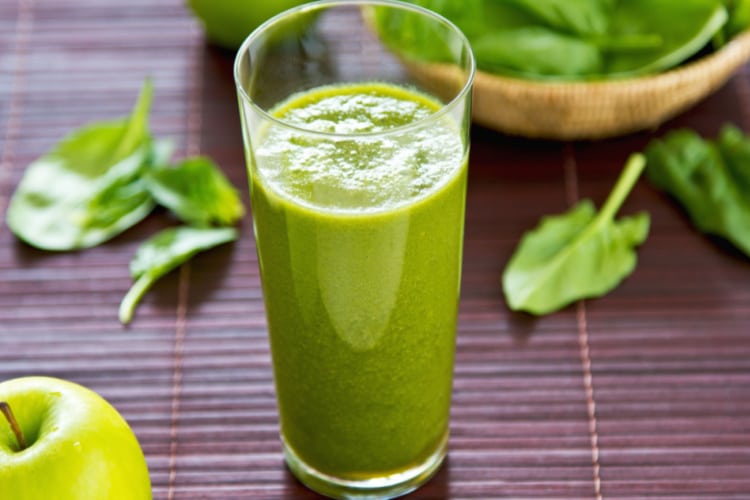
Additionally, decaffeinated chamomile, fennel ginger root, and lavender teas are often used to relieve the effects of acid reflux. You can also make water infusions with watermelon and other low-acid fruits.
Conclusion
Carbonated beverages like cola may cause acid reflux by relaxing the muscles that keep the acid in your stomach. Due to their high sugar and acid content, over-consumption of these drinks is bad for your health and can aggravate symptoms of acid reflux.
It can also cause bones and tooth enamel to erode, creating the perfect conditions for the development of cavities.
Overall, it might be fine to pop open a can once in a while, but we recommend you switch to healthier, less acidic alternatives if you regularly drink soft drinks.
You can check out our common acidic foods you should avoid article to learn more about acidic beverages and foods.

